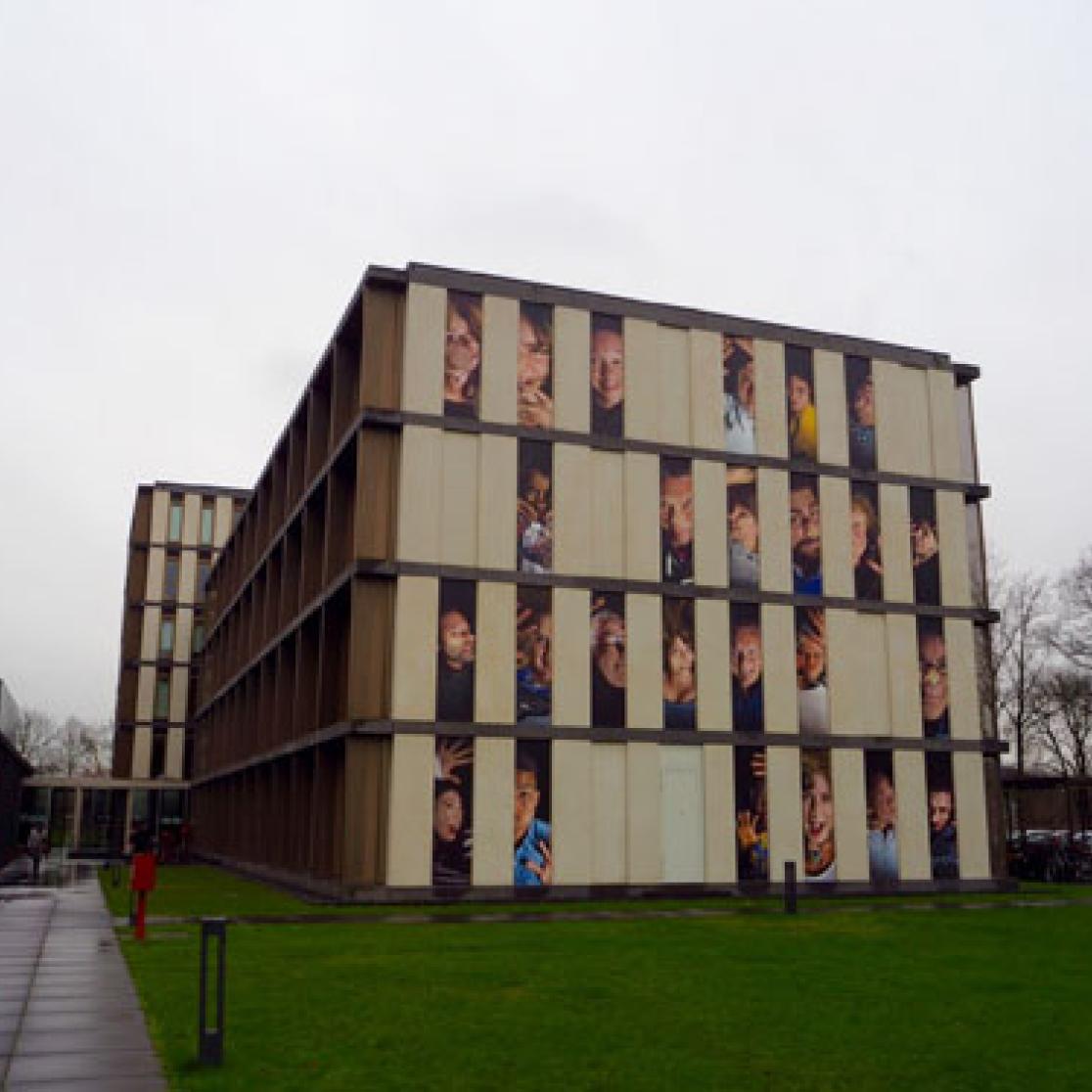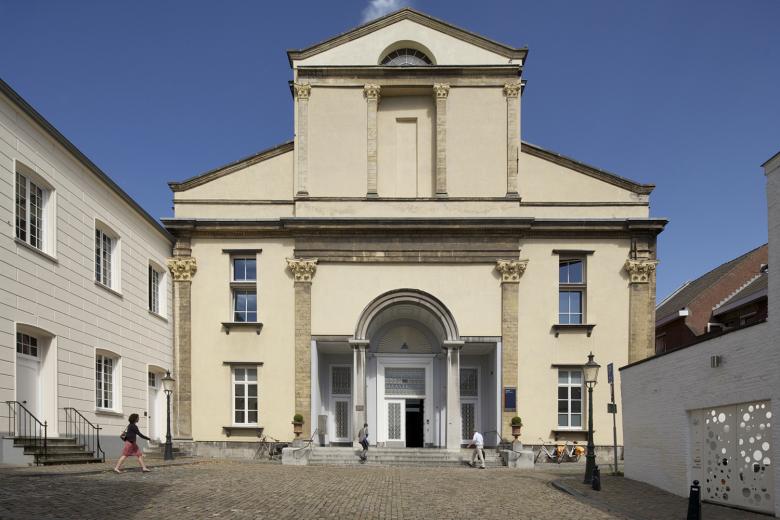Artwork by Florentijn Hofman inaugurated at Brains Unlimited Building
The internationally acclaimed artist Florentijn Hofman, known for his Rubber Duck sculpture, created an artwork for the facade of the Brains Unlimited building at Oxfordlaan 55 in Maastricht. Brains Unlimited is a ground-breaking brain research centre where education, research and the business community converge. Hofman united these elements in a creative and playful way by adding a unique touch to the building’s facade. The artwork was officially inaugurated on Friday 4 March.
The building on Oxfordlaan houses the multidisciplinary imaging platform Brains Unlimited, where researchers and businesses conduct innovative studies on common diseases such as Alzheimer's, Parkinson's, epilepsy, schizophrenia and MS and research the development of human behaviour. Brains Unlimited is partnership between Maastricht University's Faculty of Psychology and Neuroscience, Scannexus and Biopartner Center Maastricht. Scannexus manages the ultra-high scanning facilities, which includes the famous 9.4 Tesla MRI scanner, while Biopartner Center Maastricht acts as an incubator for spin-off companies.
Hofman's artwork was inspired by the building itself, with its various functions and users, and features portraits based on scans. The work was created in collaboration with photographer Inge Hondebrink and students and staff, many of whom have an international background. The initiator was Maastricht University's Art and Heritage Committee.
Florentijn Hofman is a Dutch artist who gained international acclaim with his surprising installations, the most famous of which is Rubber Duck – a huge yellow duck that is exhibited around the world. The inflatable duck has been docked in the ports of major cities across Europe, Asia, America and Australia.
Click here to see the 'making of' video

Also read
-
Caroline Coeckelbergh - never too old for sun protection
Despite widespread awareness campaigns and well-known prevention strategies, the number of skin cancer cases continues to rise. It is now the most common form of cancer in the Netherlands, particularly among people over the age of 65. According to Caroline Coeckelbergh, alumna of the master’s...

-
UM seeks new balance between the university and student associations
Maastricht University is suspending its relationship with student associations Tragos and Circumflex until further notice. Discussions with the boards of these associations have revealed that agreements outlined in the Code of Conduct have not been upheld. Experience from recent years shows that...

-
Discrimination makes women want to work less
Recent research by scientists at Maastricht University in the Netherlands and Aarhus University in Denmark shines a new light on the gender pay gap. Discrimination makes women want to work fewer hours.
